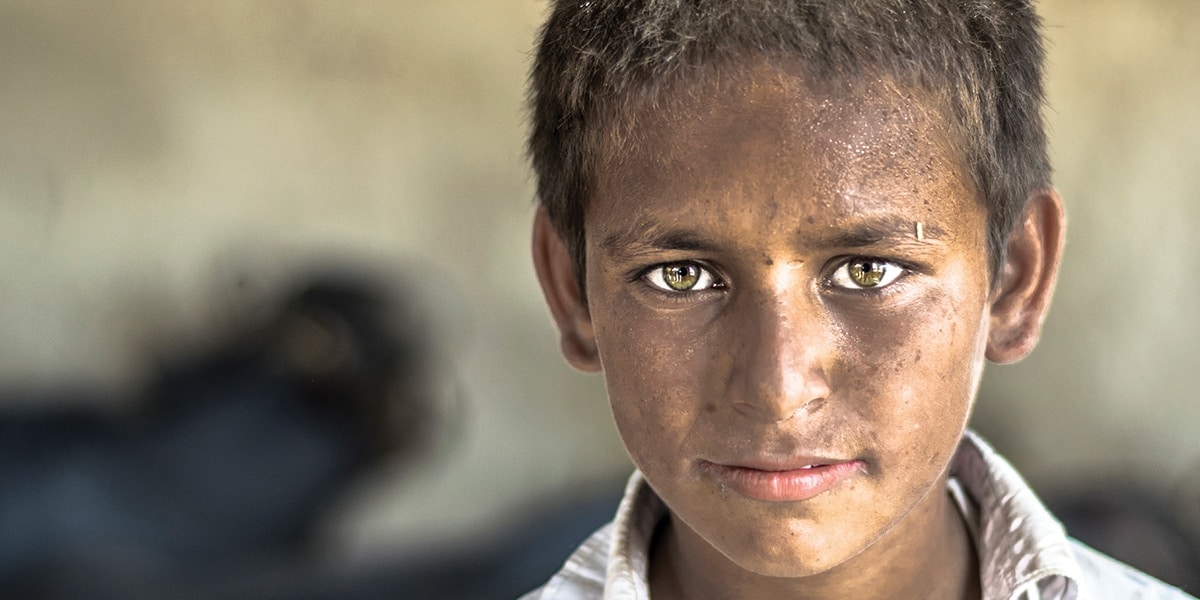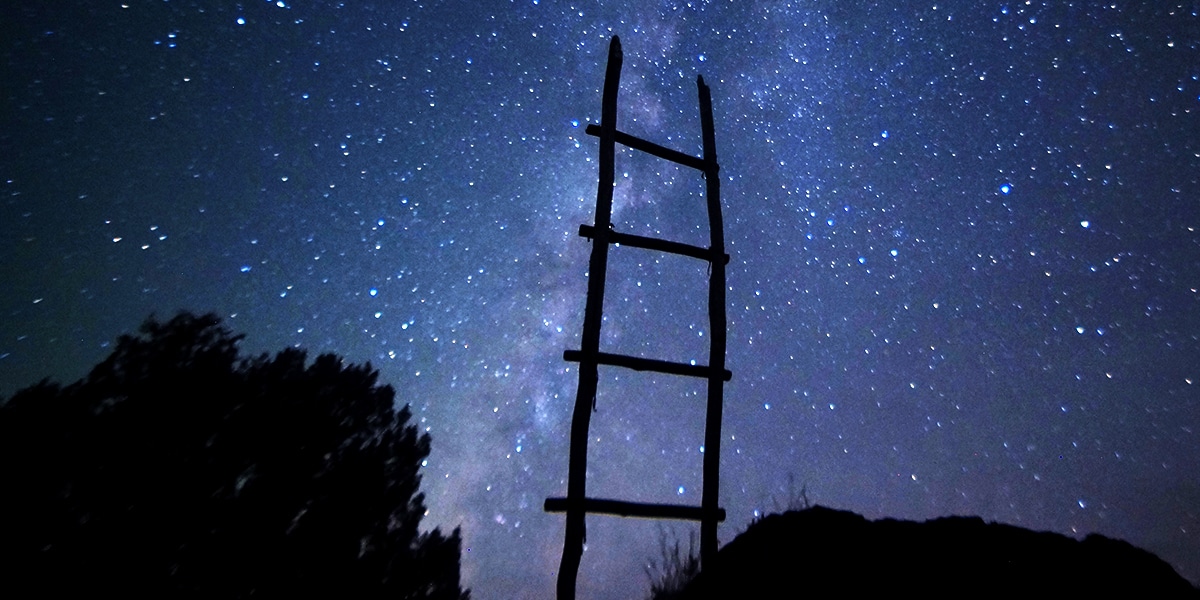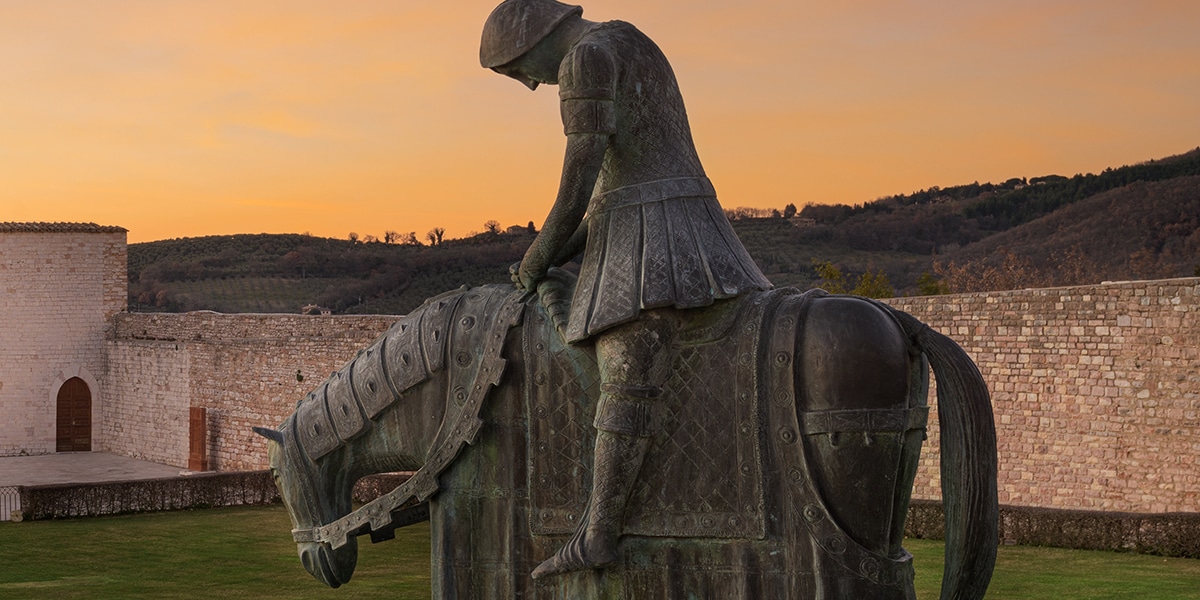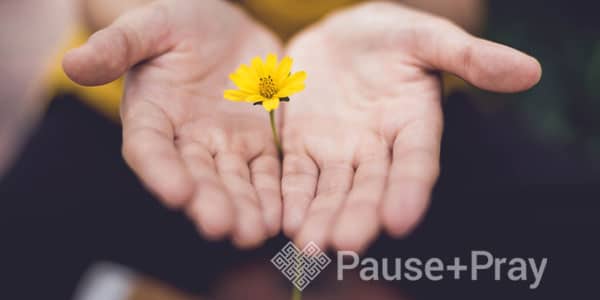Inspired by St. Francis, this author reaches beyond language and cultural differences to connect with Afghan refugees resettling in the United States.
A young Afghan boy told me about his harrowing escape from Afghanistan the day Kabul fell.
He had been in school that day but managed to connect with his uncle and cousins to get to the airport. He came here with only the clothes on his back. His sandals are falling apart, held together by tape. His family is still in Afghanistan.
He is one among thousands of Afghan refugees who fled after the Taliban captured the capital city on August 15, 2021. For a long time, Afghanistan has been a pawn in the global power struggle between superpowers. It is a beautiful country that was the birthplace of the great Sufi mystic and poet Rumi.
Today some 95,000 of our Afghan brothers and sisters are scattered throughout the United States at various refugee camps. During previous migrations, Americans have been generous in traveling to other countries to help at refugee camps; many have donated money and resources to help. This is the first time in a long time that we have set up refugee camps in our own country.
A Salaam and a High Five
I spent several weeks volunteering in such a refugee camp in Virginia, filled with over 5,000 Afghan refugees. Many came with nothing. Many are separated from family members. They speak Pashto or Dari along with some English. Each morning as I arrive at the camp, I am greeted with the traditional salaam with a bow of the head and a touch to the heart—though many of the boys that I worked with follow that up with a high five and “What’s up?”
Despite all that he has been through, the young boy who told me about his escape from Afghanistan is filled with laughter and joy. He speaks a little English, so he helps teach the other children who do not. I also heard the story of a young man who is married and has one daughter. He has a master’s degree. Despite the fact that he has lost everything, he has a contagious smile. I was trying to teach him English while he taught me Pashto.
I was part of a group of volunteers from different organizations, including the United States Conference of Catholic Bishops. Our role was to provide recreational opportunities and a chance to relate with some Americans in a relaxed and friendly atmosphere.
While at the camp, I was blessed to work with volunteers representing different parts of the country and coming from various backgrounds. Some I had previously worked with, and others I met for the first time. We all had one thing in common: an inner sense of how we are all connected and a drive to reach out to those in need.
I draw my inspiration from the 13th-century Franciscan theologian and leader St. Bonaventure, who tells us that how we choose and what we choose make a difference—first in what we become by our choices and second in what the world becomes by our choices. This simple statement by Bonaventure explains the profound vision of St. Francis: a vision of a world where we are all connected; through God, we are all one.
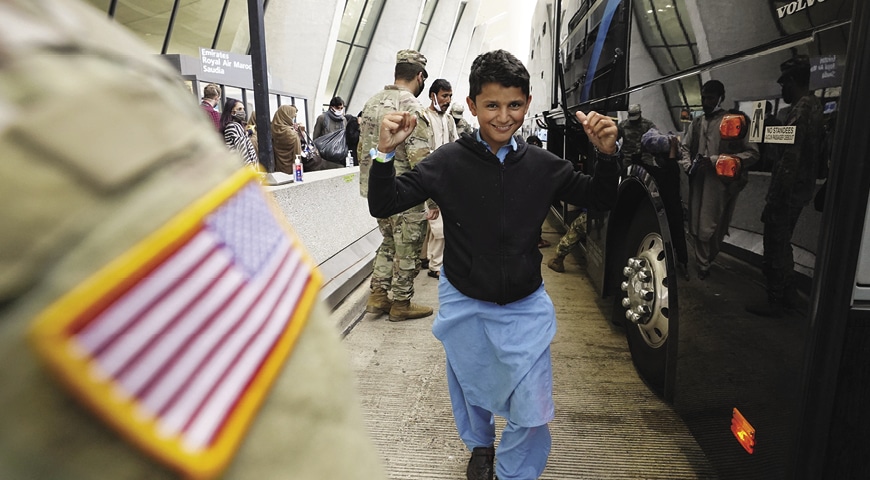
An Afghan boy pumps his arms with excitement as he and other refugees board a bus at Washington Dulles Airport on September 1, 2021.
Photo: CNS photo: Kevin Lamarque/Reuters
Making Connections
Larry and Cathy Couch share that vision. Larry has been a Catholic activist and leader. We had worked together on numerous projects over the years, particularly around immigration. He served as a lobbyist for the National Advocacy Center of the Sisters of the Good Shepherd in Silver Spring, Maryland. He has advocated for people living in poverty and victims of human trafficking, worked to prevent domestic abuse, and sought compassionate immigration reform.
At the camp, we were told that our role would be to interact with the refugees and maybe help provide some recreational opportunities. Larry and Cathy thought they would be working at the distribution center, sorting and distributing clothes and other supplies. Instead, they were assigned to work at a recreational tent where Afghans would gather during the day. The tents were separated by gender, so Cathy was at the women’s tent and Larry at the men’s.
As Larry described it: “Our challenge was to relate with the refugees across the language barrier. This proved to be a more interesting and more challenging work than handing out clothes.”
The tents were open each day from 9 to 5. When we arrived, there were no structured programs in the tents. Folks just came and hung out. The younger boys would go back and forth between the men’s and women’s tents. Larry mentioned that years ago he had volunteered with Big Brothers. There he learned that sometimes it is enough to just be there, watch TV, and play games. As Cathy described it: “We were told to ‘engage’ with the kids. That was no problem. The girls were very friendly and eager to interact with me and with the female Marines who were assigned to the tent.”
Because there was no formal structure, we volunteers were pretty much left on our own. Our days consisted of doing art projects, teaching language skills, shooting hoops, and just being present.
While the children were energetic, it was clear that they had recently gone through a major trauma, having been displaced from their homes and lost most or all of their possessions. Indeed, they were now strangers in a strange land. Despite this, they were very eager to learn, especially English.
Larry is a master in tae kwon do. Tae kwon do had been growing in popularity in Afghanistan since Rohullah Nikpai won medals in both the 2008 and 2012 Olympics. Larry offered to teach basic skills to the young boys, but that idea was rejected. It was felt that many of the children had been traumatized by war, and it was feared that if we trained in tae kwon do on a military base, the children might assume they were being prepared to go into battle.
Instead, we organized a demonstration on the base. The theater was packed with boys and girls and some adults. They were somewhat skeptical at first, wondering what this old White guy was doing wearing a dobok (the uniform worn by tae kwon do martial artists). But when Larry started breaking boards with his hands and feet, they sat on the edges of their seats, cheering. For a brief period of time, we gave them a respite from their trauma. Larry and Cathy summed up their experience, saying: “We are very grateful to have had the opportunities to spend time with these wonderful Afghan refugees. Hopefully, we helped to make their transition into our way of life a bit less stressful.”
Sharing Stories and Laughter
A week after Larry and Cathy got to the camp, I arrived. At the airport, I met a volunteer from New Mexico named Pooya Rezai. Pooya himself was a refugee. He was born in Iran in 1973. His family left during the Iran-Iraq War and settled in America in 1984. Pooya had previous experience working with refugees.
When he was a teen in Los Angeles, his parents started a community center to assist immigrants and refugees with notary and translation services. With the mantra “Keep Your Roots and Learn Your New Country” as a model, the community center hosted Persian poetry nights, plays, and concerts. Years later, Pooya responded to the refugee crisis in Europe as a volunteer. He traveled to Lesbos, Greece, to volunteer with Emergency Response Centre International.
Pooya and I formed a team. Each morning when we arrived at the tents, Pooya would organize the boys and lead a morning exercise session. I would sit with the men and share stories. They would ask me questions about different parts of the country. They were concerned about how to maintain their culture while assimilating into America. Sharing our stories was a way to teach them English. They all wanted notebooks so they could write down phrases and practice them.
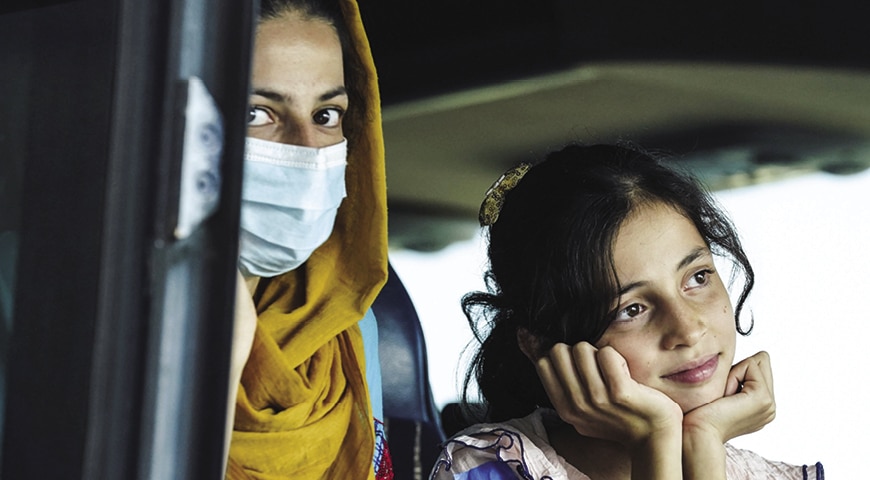
Refugees travel by bus to a processing center. They are among hundreds who fled Afghanistan after the fall of Kabul to begin a new life in America.
Photo: CNS photo: Kevin Lamarque/Reuters
Despite all that they had lived through, they still managed to laugh—especially when some of the younger men asked me about dating in the United States and I tried to explain the concept of online dating.
Pooya came up with the idea of building kites. For various reasons we were told that it would not be a good idea. But we went ahead anyway, gathering newspapers, sticks, string, and glue to assemble a dozen kites. We gathered the boys in an open field and gave them the kites. The look of joy on their faces was priceless. These boys had been through a traumatic experience, but for a brief few hours they were able to be just boys again.
A number of other people volunteered to help. Marines were assigned to each tent; some would spend time with the boys and girls playing basketball or Uno. One Marine shared her story. Her parents were refugees from Central America and had to escape violence in their home country. She was able to convey hope to the Afghan women.
We also worked with Ariana Arghandewal, a refugee from Afghanistan whose parents left during the civil war in 1989. She came to the center to work as an interpreter. When I asked her why, she said: “I’ve been a refugee twice over and understand both the cultural and linguistic challenges of moving and adjusting to an entirely different society. I wanted to be of service to people who would be experiencing some of those challenges. I came to the United States from Germany, and that was a culture shock that took me years to adjust to. Clearly, those coming from Afghanistan would have a hard time with it. I just wanted to ease that transition for them.”
Welcoming the Stranger
One key concept in every major religion is the belief in welcoming the stranger. The Bible is full of messages about this. Ezekiel 16:49 tells us that God destroyed the cities of Sodom and Gomorrah because of the inhabitants’ refusal, despite their prosperity, to care for the stranger and the poor. The Gospel of Matthew teaches us, “For I was hungry and you gave me food, I was thirsty and you gave me drink, a stranger and you welcomed me” (25:35).
St. Francis would never have considered anyone a stranger. He would have thought of them as a child of God, his brother and sister. He would welcome them, feed them, and care for them. St. Francis viewed all creation as his brothers and sisters. He understood that we are each unique but connected through creation.
Every creature is not only a member of a certain species but also a unique aspect of the infinite mystery of God. Every aspect of creation is a unique sacred story, and through our interconnectedness with God and all creation, we are part of the sacred story.


